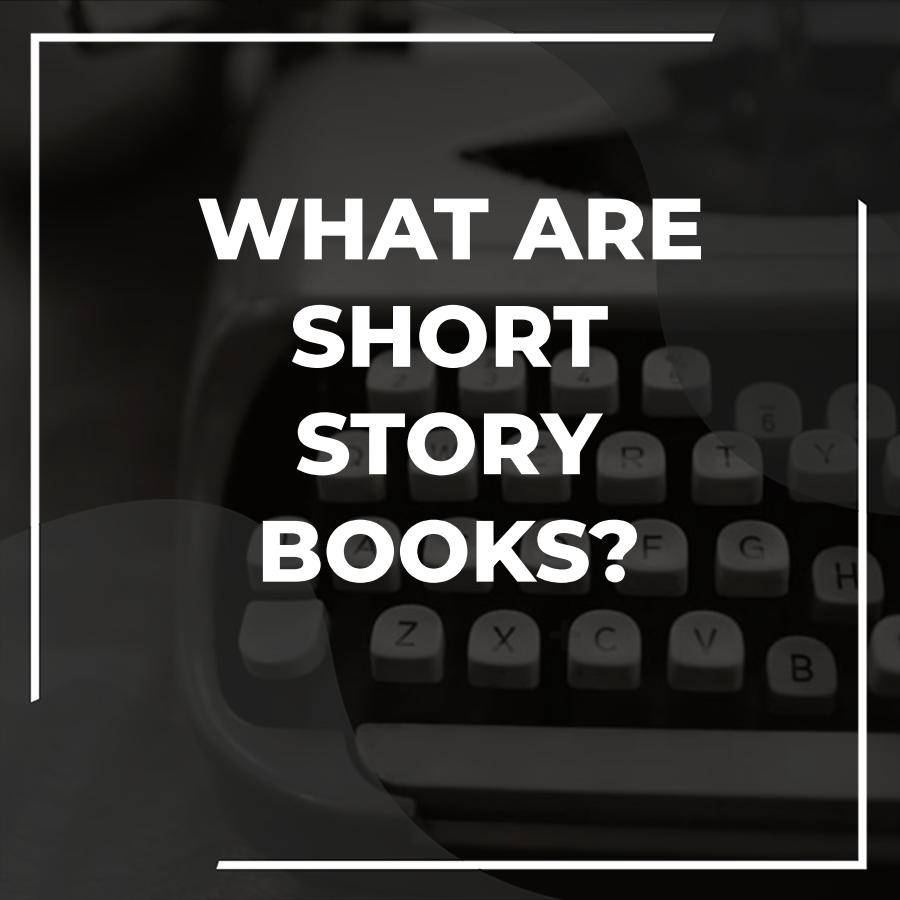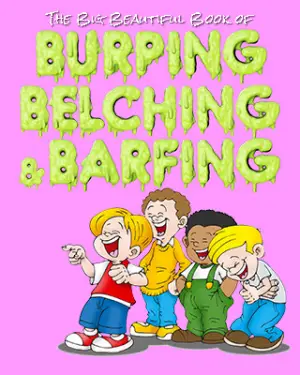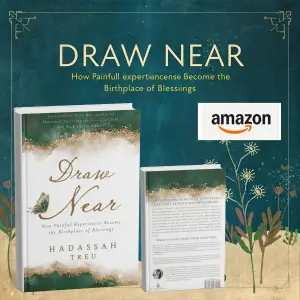Many readers and writers may be curious about the term “anthology,” yet are unsure what it means. An anthology is essentially a collection of literary works, such as short stories, poems, essays, or excerpts, compiled by different authors or centered around a specific theme. It serves as a vibrant showcase for diverse talents and perspectives within a single volume.
Whether you’re a budding writer or an avid reader, anthologies provide an opportunity to explore various voices and styles without committing to an entire book by a single author. Now, let’s delve deeper into the captivating world of anthologies.
Table of Contents
Types of Anthologies
Anthologies come in various flavors, each serving its unique purpose and audience.
Literary Anthologies
Literary anthologies are the classic form, featuring short stories, poems, or essays by multiple authors. A popular example is “The Best American Short Stories” series, which gathers diverse voices to provide readers with a carefully curated mix of contemporary writing. These anthologies showcase a range of viewpoints, introduce readers to unfamiliar authors, encourage broader reading habits, and supply context for literary trends.
Imagine a reader flipping through “The Best American Short Stories 2023.” One page showcases a gripping tale about urban life by a debut author. Meanwhile, the next immerses them in a nostalgic character study by a celebrated writer. This diversity fosters a richer reading experience, as different styles and themes intermingle.
Thematic Anthologies
Thematic anthologies focus on a specific topic, genre, or theme. These can include collections centered on love, horror, or historical events. For example, “Women of Horror” gathers stories from various female authors, each bringing their unique perspectives to the genre. Such collections do more than entertain; they sometimes offer social commentary or explore marginal voices within a specific theme.
Imagine a reader who picks up “The Mysterious World of Horror.” They find stories of psychological horror, slapstick comedy, and even modern interpretations of classic scares. This approach amplifies the richness of literature, allowing readers to explore a subject from multiple angles and find connections between seemingly unrelated works.
Author-Centric Anthologies
While many anthologies feature numerous voices, author-centric anthologies focus solely on a single writer. A collection like “The Collected Poems of Emily Dickinson” showcases the breadth of Dickinson’s work, celebrating her distinctive style and themes throughout her life.
Collections like these showcase an author’s growth by highlighting how life and environment shape each work. Readers can appreciate the depth of a writer’s oeuvre, exploring everything from early drafts to final pieces.
Multi-Genre Anthologies
Multi-genre anthologies shake up tradition by mixing formats and styles. These collections bring together poetry, prose, and visual art in a single place. “The New Yorker Fiction” anthology showcases not only short stories but also essays and classic pieces from the magazine’s storied past.
This variety can entice different types of readers, making anthologies a fantastic choice for those who enjoy exploratory reading. A reader who appreciates poetic expression might find themselves captivated by a short story, or vice versa.
Advantages of Reading Anthologies
Broadening Horizons
Reading anthologies introduces readers to a wide range of writing styles and genres. For instance, imagine a young adult who typically reads only fantasy novels. They might pick up a themed anthology focused on LGBTQ+ short stories. This shift opens doors to new realities, experiences, and author voices they might not have sought out independently.
Discovering New Authors
Anthologies serve as excellent introductions to new authors. A reader who enjoys a particular story in an anthology might seek out the author’s other works. Perhaps they stumble upon the short story “The Lottery” by Shirley Jackson in “The Penguin Anthology of Twentieth-Century American Poetry.” Motivated by their interest, they might then venture into reading “We Have Always Lived in the Castle,” leading to a deeper appreciation for her mastery of suspense.
Curated Experience
Anthologies provide a curated reading experience. These books gather standout works, sparing readers the hassle of searching bookstores or browsing endless websites for undiscovered favorites. A themed anthology presents a collection of stories, poems, or essays that resonate emotionally or intellectually with readers.
For example, an anthology such as “Black Voices” can collect works by Black writers from different eras, showcasing the evolution of themes like identity, resilience, and community. This curated collection not only saves time but also guarantees a richness of content that may not be available in a standalone work.
Challenges of Anthologies
Inconsistent Quality
Because anthologies often bring together multiple authors, readers will notice differences in story quality within the collection. Readers might find themselves deeply moved by one piece only to feel disconnected from the next. This inconsistency can frustrate readers who prefer a more uniform experience.
Consider an anthology that promises suspenseful narratives. A reader may thrill at a gripping tale but be disappointed when the next entry lacks the same tension or creativity. For some readers, this rollercoaster of quality can detract from the overall enjoyment.
Limited Context
Anthologies can sometimes lack in-depth context. While they showcase various works, they may not provide ample background information about their origins or the authors’ intentions. Readers might miss out on important cultural or historical context that would enhance their understanding of a particular piece.
For example, a historical anthology featuring Civil War-era poems may include works without sufficient context. In this situation, readers must figure out the meaning on their own, missing the background that shaped these voices. This lack of context can weaken the reading experience.
The Role of Editors in Anthologies
Curating an anthology is no small feat, and editors play a crucial role in the process. They must meticulously sift through hundreds of submissions to select the works that best fit the anthology’s theme.
Selection Criteria
Editors often establish specific criteria for selecting pieces, including originality, thematic relevance, and emotional impact. They may have a particular audience in mind and will curate stories that resonate with that demographic. For example, an anthology on mental health might prompt an editor to seek moving essays that explore real-life challenges and victories.
Creating Cohesion
A well-constructed anthology should flow smoothly, with a coherent structure that engages the reader. Editors often organize works strategically, grouping pieces by theme or tone. This organization helps readers experience a range of emotions as they move from one piece to another. A successful anthology presents a rich tapestry of literature that feels interconnected.
Notable Anthologies Throughout History
Throughout literary history, several anthologies have reshaped literature and culture in memorable ways.
The Norton Anthology of English Literature
First published in 1962, this anthology has played a vital role in the education of countless readers and students. It features a sweeping selection of English literature, spanning from the Middle Ages to contemporary works. As readers explore historical shifts in writing styles and themes, they discover the evolution of literature itself.
The New Yorker Fiction Anthology
This anthology compiles some of the best short stories published in “The New Yorker.” The selection highlights work from well-known writers and introduces new talent to fiction lovers. This anthology thrives on diversity, reflecting a broad spectrum of human experience within its pages.
The Best American Series
The “Best American” series encompasses a wide array of genres, including short stories, essays, sports writing, and science fiction. Each volume is curated by notable guest editors, bringing their unique perspectives and preferences to the selection process. This series offers something for everyone, regardless of one’s literary tastes.
How to Approach Anthologies
Skimming and Scanning
Due to the nature of anthologies, it’s crucial to approach them with a flexible mindset. Readers can skim through titles and abstracts to get a feel for the collection’s tone and themes. When a piece stands out, a reader can slow down and enjoy it more deeply.
For example, in an anthology dedicated to Asian-American writers, a reader may find stories that appeal to them. Readers can pick works that match their tastes and shape their own reading experience.
Mixing and Matching
Anthologies can serve as a “pick-and-mix” experience, allowing readers to explore different pieces without the commitment of a full-length novel. This method encourages readers to engage with a variety of voices, styles, and subjects.
One reader might dive into a sci-fi anthology, savoring a thought-provoking story about artificial intelligence before jumping to a romantic tale set in Paris. This versatility allows readers to shift gears and discover interests they weren’t aware existed.
Pairing with Full Works
For those who find themselves captivated by a particular author or piece in an anthology, consider pairing it with other full-length works by that author. For instance, if a reader enjoys a short story from the anthology “American Short Stories,” they could follow it with the author’s novel to dive deeper into the themes and characters.
This blending of anthologies with individual works can create a more comprehensive understanding of an author’s voice and themes, turning a light reading experience into a deep literary exploration.
How to Create Your Anthology
Feel inspired to create your anthology? Here are the key steps to consider.
Define Your Theme
Begin by identifying the central theme or purpose of your anthology. This theme may be a specific topic, genre, or style. Having a clear vision will guide your selection process and help attract the right contributors.
Invite Contributors
Reach out to writers whose work aligns with your theme. Be transparent about your vision and acceptance criteria. You might consider hosting submission calls through writing communities or social media platforms to cast a wide net for potential authors.
Set a Timeline and Guidelines
Once you have a collection of works, establish a timeline for the project. Share deadlines for edits and final submissions with your contributors. Outline formatting requirements and expectations up front to keep the process running smoothly.
Editing and Designing
When all pieces are ready, start the editing process. You might want to enlist the help of fellow editors or beta readers to ensure clarity and cohesion among the pieces. After editing, a visually appealing design enhances the reader’s experience. Consider the layout, font, and cover design that best reflect the theme of your anthology.
The Future of Anthologies
Digital platforms have revolutionized the way people create and consume anthologies. E-books and audio anthologies have made them more accessible, allowing readers to enjoy curated collections at their convenience.
Furthermore, self-publishing and online communities have opened the doors for niche anthologies. A collection focused on emerging voices in science fiction or an anthology centered around post-pandemic literature can arise, catering to specific interests that traditional publishing may have overlooked.
This evolution reflects a growing appreciation for anthologies as a significant literary form, showcasing voices and stories that enrich the literary landscape. The diverse offerings ensure that every reader can find something that speaks to their interests while also discovering new horizons.
Additional Information
Anthologies are more than just collections of stories; they come with their unique traits and surprises.
- Diverse Voices: Anthology collections bring together many authors, allowing readers to experience a range of writing styles, voices, and perspectives all in one book. This diversity can lead to discovering new favorite writers.
- Theme-Based Collections: Many anthologies focus on a specific theme, such as love, horror, or adventure stories. This thematic focus creates a cohesive reading experience as each story contributes to a broader conversation on the chosen topic.
- First-Time Opportunities: Anthologies can provide a platform for emerging writers to get published alongside established authors. This approach can be an excellent way for new voices to break into the publishing world.
- Cultural Preservation: Anthologies help preserve cultural narratives, especially when individual stories might not gain widespread recognition. They can highlight the work of underrepresented writers.
- Enhancing Learning: Educators often use anthologies in their classrooms to introduce students to different genres and writing styles. This approach can foster a love for reading by exposing young minds to various authors and topics in a manageable format.
- Curated Collections: Many anthologies are curated by an editor with a specific vision, making them a sort of literary mixtape. The editor’s choices can give readers insight into current trends, literary movements, or the editor’s aesthetic preferences.
- Word Count Flexibility: Short stories in anthologies can vary in length significantly, providing a quick read for those short on time. This flexibility offers readers choices that fit their mood or schedule.
- Anthology Awards: Many organizations and publications present awards specifically for anthologies, recognizing the importance and artistry of this format. These awards often highlight collections that deserve attention and make good starting points for readers.
- Cross-Genre Exploration: Anthologies often blend genres, allowing readers to experience a variety of pieces, from poetry to essays to short fiction, without having to purchase multiple books. This collection can lead to unexpected favorites.
- Publishers’ Trends: The rise or fall of anthology publications can signal changes in the literary market or reader interests. Keeping an eye on the frequency of anthologies can give insight into broader industry trends.
Frequently Asked Questions (FAQs) Related to What Are Anthologies
Q. What is an anthology?
A. An anthology is a collection of works, such as short stories, poems, or essays, usually by different authors, compiled into a single book.
Q. What types of writing can be found in an anthology?
A. Anthologies can include various types of writing, such as poetry, short fiction, essays, and even plays. The key is that they bring together multiple works in one volume.
Q. Who typically compiles an anthology?
A. An anthology is usually compiled by an editor or a group of editors who select and organize the works based on a specific theme, genre, or purpose.
Q. Why are anthologies significant in literature?
A. Anthologies showcase diverse voices and perspectives, making it easier for readers to explore different styles and themes without having to read multiple separate books.
Q. Can a single author have their entire works compiled into an anthology?
A. Yes, when a single author’s works are collected, it is often referred to as a “collected works” or “selected works” anthology, allowing readers to experience that author’s range.
Q. How do anthologies benefit new writers?
A. Anthologies can provide new writers with exposure by placing their work alongside established authors, helping them reach a broader audience and gain recognition.
Q. Are there themed anthologies?
A. Yes, many anthologies are themed, focusing on specific topics, genres, or social issues, which helps readers select titles that match their interests.
Q. How do I choose an anthology to read?
A. Look for anthologies that feature themes or genres you enjoy, check the editor’s reputation, and read reviews from other readers to find a collection that excites you.
Q. Can anthologies include works from different periods?
A. Absolutely! Anthologies can span many periods and often feature classic works alongside contemporary pieces, offering a historical context and evolution of styles.
Q. Where can I find anthologies?
A. You can find anthologies in bookstores, libraries, and online retailers. They’re often highlighted in literary sections, making them easy to discover and explore.
Conclusion
Anthologies are collections of works that bring together various voices and styles, often centered around a common theme or genre. They allow readers to explore diverse perspectives and discover new authors in one convenient package. Whether you’re interested in poetry, short stories, or essays, anthologies offer a treasure trove of literary delights. So, next time you’re searching for your next read, consider diving into an anthology—it might just introduce you to your new favorite writer!







